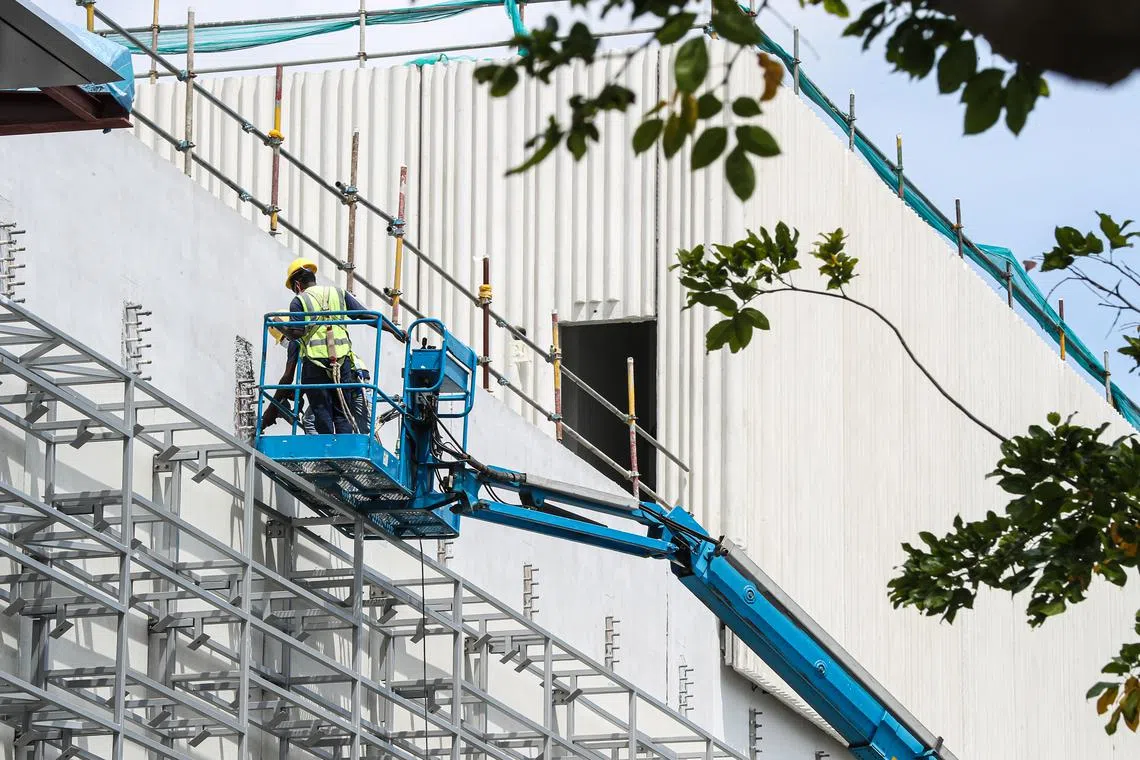Tighter controls on lower-skilled foreign workers help boost employment for locals: Tan See Leng
Sign up now: Get ST's newsletters delivered to your inbox

More than 1.5 million foreigners help Singapore plug the manpower gap to run its US$400 billion ($540 billion) economy.
PHOTO: BT FILE
SINGAPORE – Tighter controls on hiring lower-skilled foreign workers are more likely to prompt companies to recruit more locals, compared with tightening access to foreign workers who are higher-skilled, said Manpower Minister Tan See Leng on Monday.
This is because businesses were able to substitute lower-skilled but cheaper foreign workers with locals, and improve production processes accordingly, Dr Tan said in response to a question raised by Workers’ Party MP Leon Perera (Aljunied GRC).
The finding is based on government impact assessment studies, which are carried out regularly on policies, including those related to the foreign workforce.
He added: “This has therefore informed our approach of remaining open to high quality foreign professionals, while maintaining a disciplined stance in regulating the number of work permit holders through quotas and levies.”
More than 1.5 million foreigners help Singapore plug the manpower gap to run its US$400 billion ($540 billion) economy.
That is because its four million-strong resident population is a fraction of similar-sized economies in the region, such as Malaysia with 33 million and Vietnam with 99 million people.
“It is important that our policies enable firms to access foreign workers who complement the local workforce, so that the firms can grow and create more opportunities for locals,” Mr Tan said.
However, it is also important to note that these studies are just one input to the entire policymaking process and have their limitations.
“For example, they are unable to account for less quantifiable effects of having foreigners in our workforce, such as the knowledge spillovers to locals and other network effects.”
The impact of the interventions studied might also change if they are applied beyond a certain scale or at a different time period, he added.
“As such, they need to be interpreted carefully alongside other sources of information, including more recent labour market statistics as well as industry feedback.”
He said proper calibration of the foreign manpower controls is necessary, as the tightening measures work only to a certain point before the outcomes turn negative.
“If you continue to tighten, it actually can have a worse-off effect for the development of our country in terms of the economic progress as well as industry developments,” he said.
Given that positive job outcomes for locals after tightening controls on foreign workers are less apparent in the higher-skilled bracket, Mr Perera asked whether Singapore is not producing enough highly skilled or qualified professionals to fill these jobs.
Disagreeing, Dr Tan said the Government is already doing significantly more to develop high-calibre local talent by investing in their training, upskilling and upgrading.
But given the small size of the population and the accelerating pace at which the global economic landscape is transforming, foreign professionals are needed to keep Singapore competitive.
“In terms of making sure that we are ahead of the competition, we will not just need to develop our own local talent, but we will also need foreign workers,” he added.



